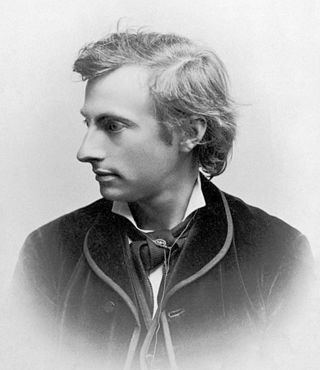
Karl Adolph Gjellerup was a Danish poet and novelist who together with his compatriot Henrik Pontoppidan won the Nobel Prize in Literature in 1917. He is associated with the Modern Breakthrough period of Scandinavian literature. He occasionally used the pseudonym Epigonos.

Swedish cinema is known for including many acclaimed films; during the 20th century the industry was the most prominent of Scandinavia. This is largely due to the popularity and prominence of directors Victor Sjöström and especially Ingmar Bergman; and more recently Roy Andersson, Lasse Hallström, Lukas Moodysson and Ruben Östlund.

Fritz Reuter was a novelist from Northern Germany who was a prominent contributor to Low German literature.
The Lady of the Camellias, sometimes called Camille in English, is a novel by Alexandre Dumas fils. First published in 1848 and subsequently adapted by Dumas for the stage, the play premiered at the Théâtre du Vaudeville in Paris, France, on February 2, 1852. It was an instant success. Shortly thereafter, Italian composer Giuseppe Verdi set about putting the story to music in the 1853 opera La traviata, with female protagonist Marguerite Gautier renamed Violetta Valéry.

My Life as a Dog is a Swedish drama film which was released to cinemas in Sweden on 12 December 1985, directed by Lasse Hallström. It is based on the second novel of a semi-autobiographical trilogy by Reidar Jönsson. It tells the coming-of-age story of Ingemar, a young boy sent to live with relatives. The cast includes Anton Glanzelius, Melinda Kinnaman, and Tomas von Brömssen.
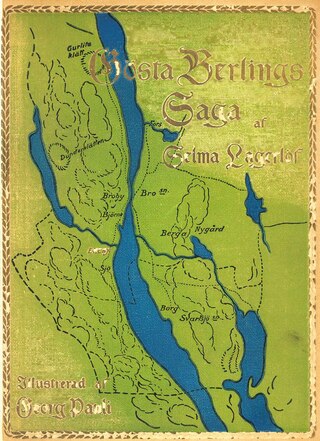
Gösta Berling's Saga, also known as The Story of Gösta Berling or The Saga of Gösta Berling, is the debut novel of Swedish Nobel Prize-winning author Selma Lagerlöf, published in 1891. It was made into a 1924 silent film directed by Mauritz Stiller starring Greta Garbo, Lars Hanson and Gerda Lundequist. A 1925 opera I cavalieri di Ekebù by Riccardo Zandonai was also based on it.
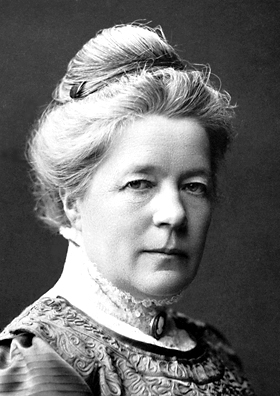
Selma Ottilia Lovisa Lagerlöf was a Swedish writer. She published her first novel, Gösta Berling's Saga, at the age of 33. She was the first woman to win the Nobel Prize in Literature, which she was awarded in 1909. In 1914, she was the first woman to be granted a membership of the Swedish Academy.
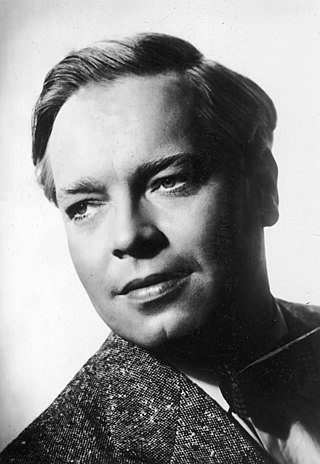
Hans Brausewetter was a German stage and film actor of the silent era. He appeared in more than 130 films between 1922 and 1945. He appeared in the 1923 film The Treasure, which was directed by Georg Wilhelm Pabst. Brausewetter died from injuries sustained in a bomb blast in Berlin during the final days of the Second World War.

Elisabeth Margarete Biermann, known professionally as Elga Brink, was a German film actress. Brink rose to prominence in the early 1920s, when she starred in many silent films. Her last silent film was Marriage in Trouble in 1928. After silent films, Brink continued acting in sound films until her retirement in 1951. Her last role was in the 1951 movie Das fremde Leben. After her retirement, Brink remarried and worked as a clerk in Hamburg until her death in 1985.

Carsta Löck was a German film actress.

Uncle Bräsig is a 1936 German historical comedy film directed by Erich Waschneck and starring Otto Wernicke, Heinrich Schroth and Harry Hardt. It marked the film debut of the Swedish actress Kristina Söderbaum who went on to be a major star of Nazi cinema. Söderbaum won her part in a contest organised by UFA. It was based on the 1862 novel From My Farming Days by Fritz Reuter. The film was shot at the Grunewald Studios in Berlin with sets designed by the art director Robert A. Dietrich.
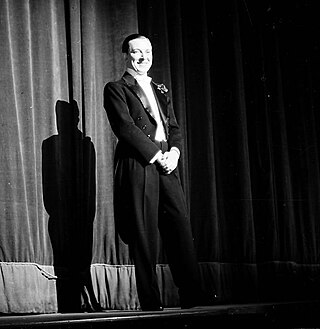
Erich Fiedler was a German film actor. He was the German dubbing voice of Robert Morley.
Georg Bruckbauer was an Austrian cinematographer who worked on over 120 films during his career.

Irma Voth (2011) is the fifth novel by Canadian author Miriam Toews. The novel, about a Mennonite teenager whose life is transformed when a bohemian film crew comes to her settlement to make a film about Mennonites, was informed by Toews' experience as lead actress in Silent Light, the award-winning 2007 film written and directed by Mexican filmmaker Carlos Reygadas.
During My Apprenticeship is a 1919 German silent drama film directed by Hubert Moest and starring Hedda Vernon, Reinhold Schünzel, and Wilhelm Diegelmann. It is based on the nineteenth century novel From My Farming Days by Fritz Reuter.
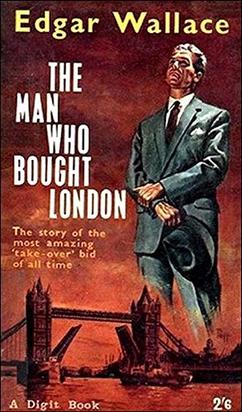
The Man Who Bought London is a 1915 crime novel by the British writer Edgar Wallace. It was originally published as a magazine serialisation.

Uncle Bräsig is a West German period drama television series which first aired on ARD between 1978 and 1980. It is based on the novel From My Farming Days by Fritz Reuter, which had previously been made into the 1936 film Uncle Bräsig. It is set in Mecklenburg in the 1840s.

Life in the Country is a 1924 Swedish silent drama film directed by Ivan Hedqvist and starring Axel Ringvall, Hedqvist and Mona Mårtenson. It is based on the classic German novel From My Farming Days by Fritz Reuter. It is now considered a lost film. A second Swedish adaptation of the novel Life in the Country was produced in 1943.
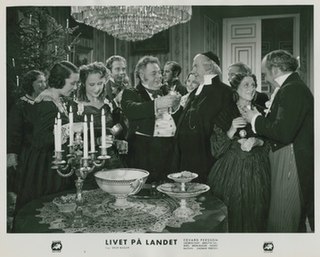
Life in the Country is a 1943 Swedish historical comedy film directed by Bror Bügler and starring Edvard Persson, George Fant and Birgitta Valberg. It is based on the 1862 German novel From My Farming Days by Fritz Reuter, which had previously been adapted into the 1924 Swedish silent film Life in the Country.
















